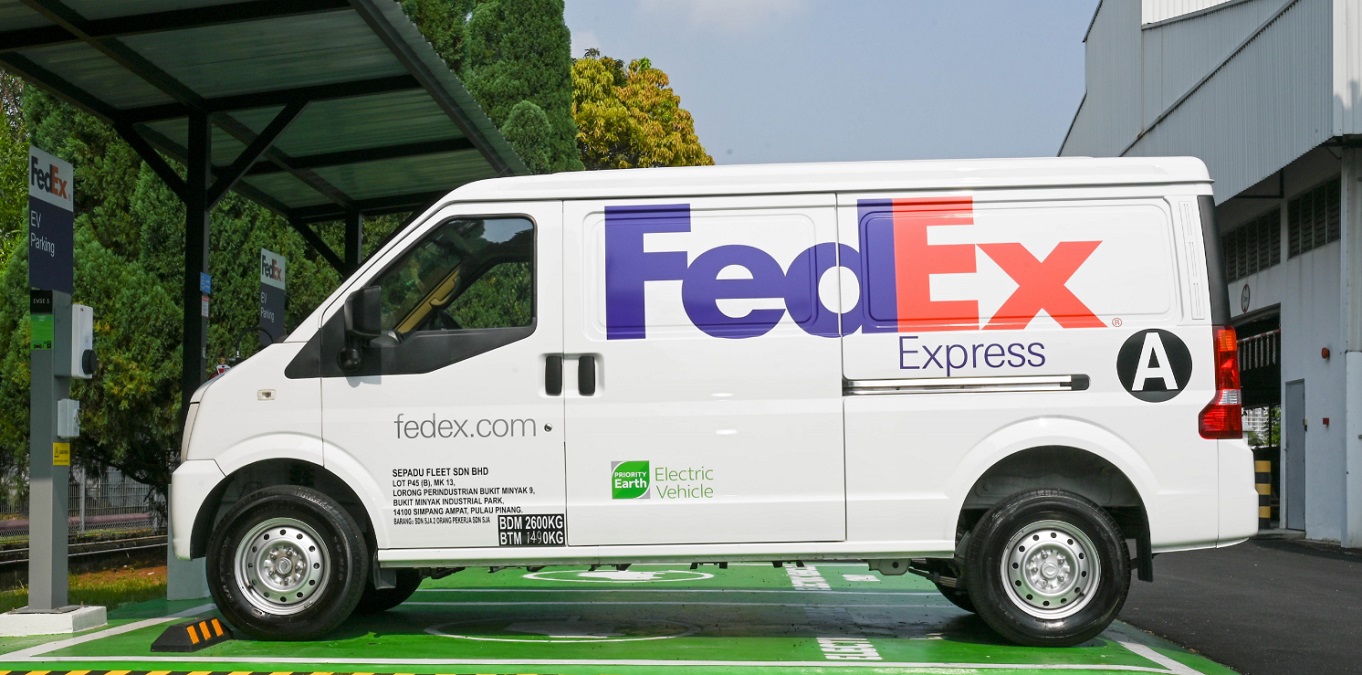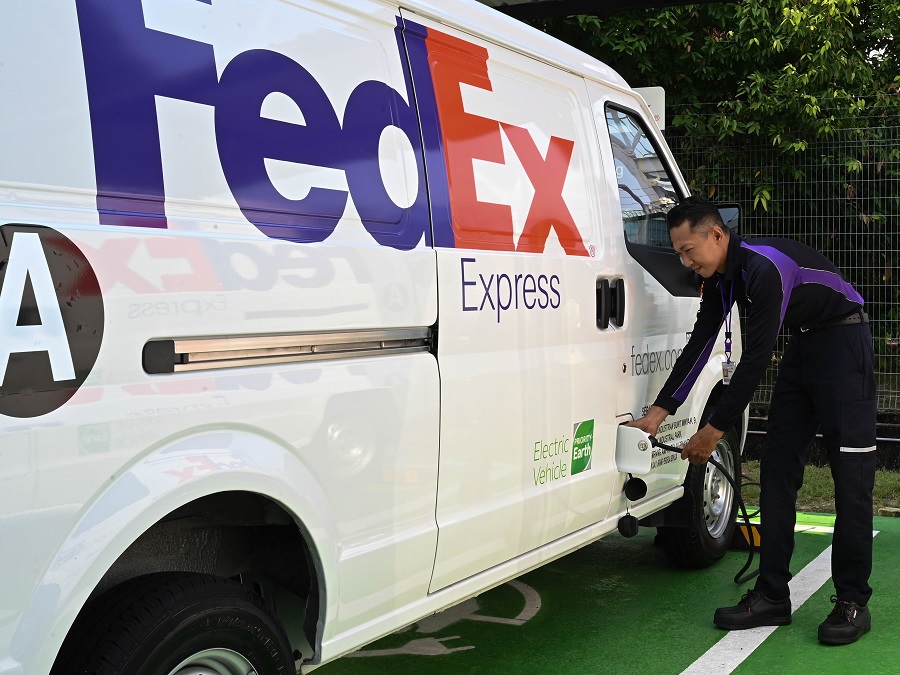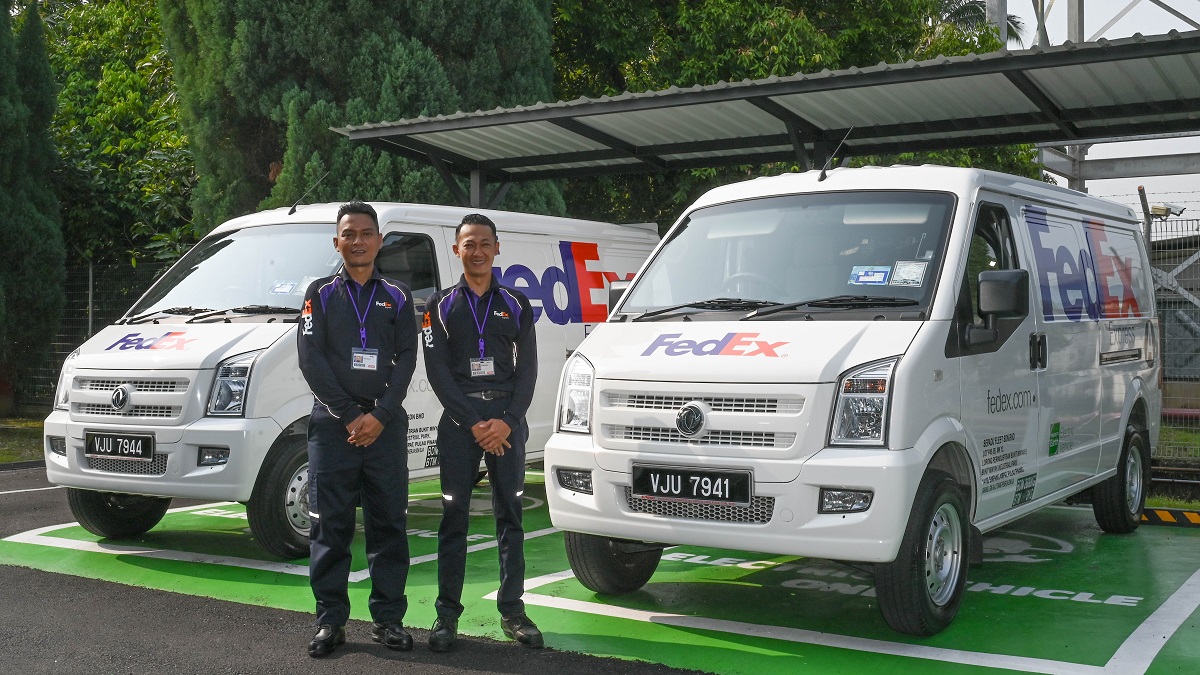As part of its ongoing efforts to lessen its negative impact on the environment and promote sustainable logistics, FedEx Express (FedEx), a subsidiary of FedEx Corp. (NYSE: FDX) and one of the world’s largest express transportation companies, has added electric vehicles (EVs) to its fleet in Malaysia.

In the Klang Valley, the first two EVs have been successfully integrated into parcel pick-up and delivery operations. In a recent statement, FedEx Express stated that its zero-tailpipe emissions vehicles will contribute to reduced carbon footprint and improved air quality in urban areas. Additionally, FedEx will continue to expand its EV fleet to help advance emissions reduction goals in Malaysia.
Tien-Long Woon, managing director of FedEx Express Malaysia and Thailand, said, “FedEx has been actively promoting the use of EVs as part of its sustainability goal, including the electrification of its fleet. We recognise the benefits of EVs in reducing CO2 emissions and are taking concrete steps to integrate them into our operations.”

“Our actions support the Malaysian government’s strong commitment to promote EVs to mitigate the effects of climate change and achieve net zero nationally by 2050. With our 30 years of operations in Malaysia, this is an opportunity for us to demonstrate our leadership in the business community and that it is possible and imminent for companies to operate sustainably while delivering high-quality products and services to customers,” he continued.
FedEx has deployed EVs in several countries across the Asia Pacific, the Middle East, and Africa regions, with China having the largest EV fleet in Asia. FedEx has conducted EV testing in India, Thailand, South Africa, and the United Arab Emirates, all of which contribute to the company’s efforts to reduce emissions.
Through a number of initiatives, FedEx is working to lessen its impact on the environment and achieve its goal of carbon-neutral operations. As part of this initiative, the company has committed to achieving its goal of running an all-electric global pickup and delivery (PUD) fleet by 2040. FedEx Express plans to reach this goal by acquiring 50 per cent of electric PUD vehicles by the year 2025 and 100 per cent by 2030.

FedEx has a specialised strategy for efficient and responsible resource management that emphasises reduction, replacement, and revolution in both its air and ground operations, including the electrification of vehicles. Sustainable packaging solutions, investments in renewable energy, and fuel-saving initiatives are just a few examples.
Turning 50 this year, and as part of the celebrations, FedEx Express is launching a new initiative to help its employees work together to improve the world by providing superior service to customers, communities, and the environment. Further details on the company’s efforts to improve the environment are reported in its most recent ESG Report. ![]()

